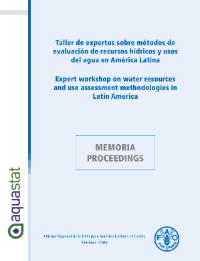Focal point
Location
The Food and Agriculture Organization of the United Nations leads international efforts to defeat hunger. Serving both developed and developing countries, FAO acts as a neutral forum where all nations meet as equals to negotiate agreements and debate policy. FAO is also a source of knowledge and information. We help developing countries and countries in transition modernize and improve agriculture, forestry and fisheries practices and ensure good nutrition for all. Since our founding in 1945, we have focused special attention on developing rural areas, home to 70 percent of the world's poor and hungry people.
Members:
Resources
Displaying 2666 - 2670 of 5074Private Investment on Land
FAO and its partners have been preparing draft voluntary guidelines to provide practical guidance on responsible governance of tenure of land, fisheries and forests as a means of alleviating hunger and poverty, enhancing the environment, supporting national and local economic development, and reforming public administration. A process of widespread participation of stakeholders through a series of regional and thematic consultation meetings as well as an electronic consultation resulted in a First Draft of the Voluntary Guidelines.
FAO Land Tenure Journal 1/2011
A new issue of the FAO Land Tenure Journal is now published in both hardcopy and in electronic formats. The 1/2011 issue features five continents and subcontinents exploring common challenges including tenure governance, the legal recognition of customary tenures, land scarcity and redistributive reforms, and the increasing role of information technology in tenure systems. The Land Tenure Journal provides an open, impartial and practice-oriented global forum for promoting the latest knowledge in land tenure.
Governing Land for Women and Men
The present paper is written as part of the overall Voluntary Guidelines consultation and development process and is a contribution to the subsequent preparation of the Gender Technical Guide. It contextualises and defines gender for the Voluntary Guidelines, discusses what governance of tenure means from a gender perspective and identifies and analyses key issues and themes. It then summarises recommendations relevant to gender before drawing some conclusions for the development process of the Voluntary Guidelines.
Taller de expertos sobre métodos de evaluación de recursos hídricos y usos del agua en América Latina -
Information on water use is required for political, economic and academic decision making on issues affecting everyone?s life. Owing to fi nancial constraints, it is diffi cult to have complete and comprehensive information on everything related to water. Techniques and methodologies are, therefore, used to affordably maximize control. To improve understanding of the different techniques and methodologies used to generate information, the AQUASTAT team sent thematic questionnaires to approximately 170 countries in April 2009.
Taller de expertos sobre métodos de evaluación de recursos hídricos y usos del agua en América Latina -
Information on water use is required for political, economic and academic decision making on issues affecting everyone?s life. Owing to fi nancial constraints, it is diffi cult to have complete and comprehensive information on everything related to water. Techniques and methodologies are, therefore, used to affordably maximize control. To improve understanding of the different techniques and methodologies used to generate information, the AQUASTAT team sent thematic questionnaires to approximately 170 countries in April 2009.










